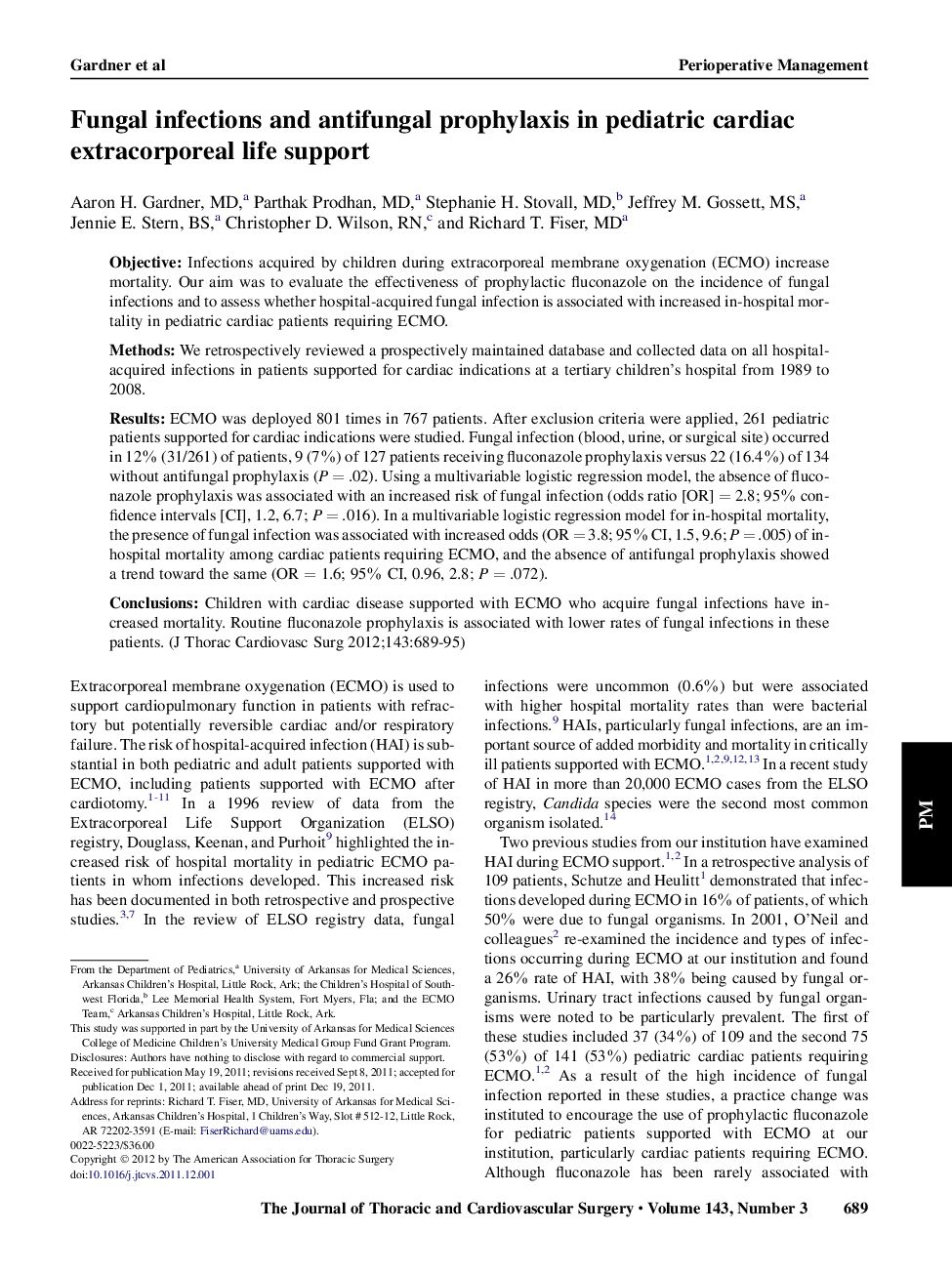| Article ID | Journal | Published Year | Pages | File Type |
|---|---|---|---|---|
| 2982323 | The Journal of Thoracic and Cardiovascular Surgery | 2012 | 7 Pages |
ObjectiveInfections acquired by children during extracorporeal membrane oxygenation (ECMO) increase mortality. Our aim was to evaluate the effectiveness of prophylactic fluconazole on the incidence of fungal infections and to assess whether hospital-acquired fungal infection is associated with increased in-hospital mortality in pediatric cardiac patients requiring ECMO.MethodsWe retrospectively reviewed a prospectively maintained database and collected data on all hospital-acquired infections in patients supported for cardiac indications at a tertiary children’s hospital from 1989 to 2008.ResultsECMO was deployed 801 times in 767 patients. After exclusion criteria were applied, 261 pediatric patients supported for cardiac indications were studied. Fungal infection (blood, urine, or surgical site) occurred in 12% (31/261) of patients, 9 (7%) of 127 patients receiving fluconazole prophylaxis versus 22 (16.4%) of 134 without antifungal prophylaxis (P = .02). Using a multivariable logistic regression model, the absence of fluconazole prophylaxis was associated with an increased risk of fungal infection (odds ratio [OR] = 2.8; 95% confidence intervals [CI], 1.2, 6.7; P = .016). In a multivariable logistic regression model for in-hospital mortality, the presence of fungal infection was associated with increased odds (OR = 3.8; 95% CI, 1.5, 9.6; P = .005) of in-hospital mortality among cardiac patients requiring ECMO, and the absence of antifungal prophylaxis showed a trend toward the same (OR = 1.6; 95% CI, 0.96, 2.8; P = .072).ConclusionsChildren with cardiac disease supported with ECMO who acquire fungal infections have increased mortality. Routine fluconazole prophylaxis is associated with lower rates of fungal infections in these patients.
